[This article was co-written by Dr. David Isaacson and Rev. David Lerseth.]
How do mission organizations start and grow? What lessons can be learned from the history of their challenges, struggles, failures and successes, as well as the path they followed to develop into their current state? Friends of Madagascar Mission (FOMM), which started in 2009, had an almost nondescript beginning, with a small vision in response to a call to help people in Madagascar. This article recounts the story and lessons learned as FOMM progressed from its first donation of $100 for one program in 2009 to raising over $400,000 per year in 2023 for eight programs.
History
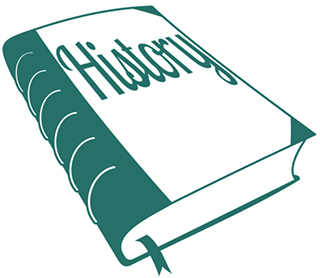
Reviewing the history of FOMM has elicited key lessons that will inform the future growth of the organization.
Pastor David Lerseth was preparing to retire after a successful and busy ministry career of several decades that included leading three parishes, serving as assistant to a synod bishop and also as Director for Global Mission Support with the national ELCA churchwide staff. “Retirement arrived unexpectedly,” says David. “I had not really thought of a specific date and I was ready to move on to my next and last career move.”
It was not surprising that David’s transition towards retirement coincided with a renewed interest in Madagascar. He says, “God had planted a seed in my heart at an early age upon having Madagascar missionaries visit and stay at our home and tell me enrapturing stories about the people and animals of that exotic island that forever stayed in my heart. During parish ministry, and especially when I was director at the ELCA, I kept my eyes on Madagascar in the hope of initiating some type of mission and humanitarian program there.”
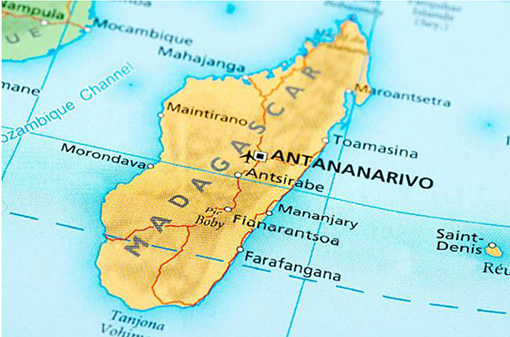
Madagascar, the “Big Island” off East Africa
Just before retirement (“a word I feel very uncomfortable with,“ says David), he identified six separate charities that focused on Madagascar and met with them in the hope of combining to create a new, unified organization that would work together on a shared vision for achieving their goals. After several meetings that were characterized by disunity, David made his decision: “I think God wants me to form an independent organization, separate from these six.”
Also prior to retirement, David had the opportunity to visit Madagascar in his role as a representat mive of ELCA Global Missions. A missionary friend provided him with crucial information about Madagascar and connected him with people who helped him formulate the vision for the new organization. In particular, he met a pastor in Antananarivo with a grueling story; he had recently been released from prison after being incarcerated under a false charge.
David says, “The needs of the people were made very real to me when I visited a church in Antananarivo and met Pastor Theodore Rajaonary. Theo had recently been set free after imprisonment due to a false accusation that was later overturned. While in prison, the Lord opened Theo’s eyes to the spiritual needs of prisoners, and he shared with me how he wanted to use his freedom to take the message of the Gospel to those in prison. Theo had already invited members of his congregation and other friends, including my missionary friend, back to the prison once a week to lead worship services and take food, clothing, medicine and Bibles for the prisoners.”
David continues, “I decided there and then to be part of Theo’s ministry by drawing alongside him in prayer and raising financial support in the USA so he could achieve his vision.”
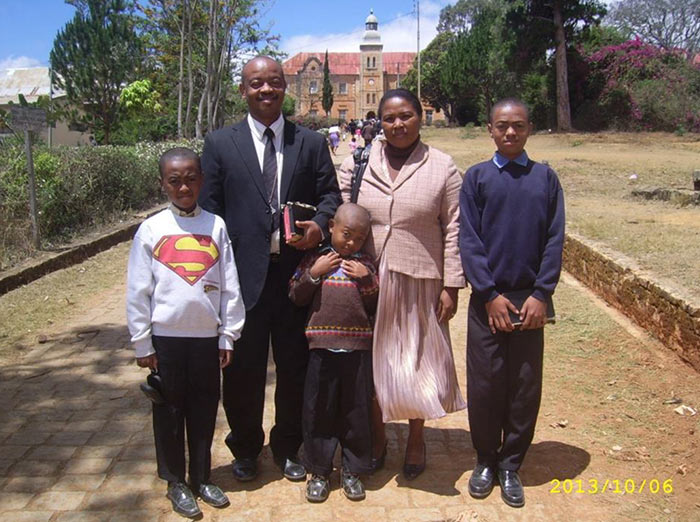
Pastor Theodoric Rajaonary and his family (2013)
Back in the U.S, it was a challenge for David to make a start as an independent organization after being within a strong church structure for so long. He reflects,
“The beginning was literally a blank piece of paper. My vision for combined support from the six other organizations had failed, I had no organization of my own, no donor list and no idea how to move forward. So I began by doing what I could. After returning from my visit to Madagascar, I was clear about the name of the new organization – Friends of Madagascar Mission (FOMM) – but needed to articulate the mission, vision and values of the organization. I reached out to the same missionary friend who had connected me with Pastor Theo for support to do this.”
The Vision
David’s vision for FOMM was simple, expressed in three key points that would enable anyone who read it to take action to participate.
- David did not want FOMM to send out missionaries, but rather to support local Malagasy people like Pastor Theo in fulfilling their call to ministry.
- He wanted FOMM projects to focus on evangelism, sharing the Gospel in Word and humanitarian love.
- He insisted that each program would have in-built lines of accountability and responsibility, with recipients of funding being required to send written and financial reports to the FOMM board every quarter.
From Vision to Written Format
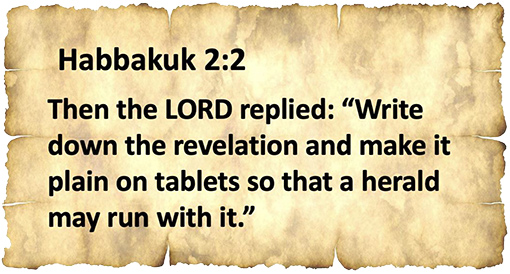
Rev David Lerseth wrote down the vision of FOMM, echoing the command given to the prophet Habbakuk to write the vision for the purpose of making it plain for others to understand.
Translating the vision to a written format echoed the command that God gave to the prophet Habbakuk 2:2: “Then the Lord replied: ‘Write down the revelation and make it plain on tablets so that a herald may run with it.’”
However, even with the vision written and ready for action, there was another time of waiting before it could be realized. Then unexpectedly, at a float parade at Augustana University in Sioux Falls, South Dakota, where David was on the alumni board, he met with another board member who was an attorney. David turned to his colleague and asked, “Lowell, do you know of an attorney in the Twin Cities with whom I could consult to help me form my proposed new mission organization? Lowell looked at me with surprise and said, “Well, that would be me!”
So, during David’s next visit to Minneapolis he had an appointment with Lowell at his corporate law firm in a high-rise building.
“I entered the office complex, was ushered into a board room with beautiful wood walls and comfortable leather chairs. In a few minutes Lowell entered the room, and I gave him my proposed by-laws. He quietly looked them over page by page and said, ‘This is it, all that I need.’ He said, ‘David, I help non-profits all the time to get their by-laws written, but normally they do not know what they want. But I see that you know what you want your organization to be about. All I have to do is pull certain parts out for the registration documents to establish your new organization as a non-profit in the State of Minnesota.’”
David continues, “I was in shock, actually, but tried not to say or show that. I left Lowell’s office walking on cloud nine. In a few weeks I had all the paperwork back from Lowell and he submitted the necessary papers to the State of Minnesota.”
Building a Team
After the euphoria of the registration of FOMM had settled, David knew there was much work to do in building a team by approaching individuals to serve on the FOMM board of directors. “I invited two of my daughters who lived in the Twin Cities because I wanted to pass my passion for Global Mission and especially for Madagascar to them. At that time my third daughter lived in San Diego, California, and it was not possible for her to be a part of FOMM because this was before meeting virtually became the reality (she is also part of the FOMM support team now). I then invited a couple of pastor friends who also lived close to Minneapolis and would be able to attend board meetings. We met and signed all the documents, and we were ready to begin. On December 29, 2009, we were legally registered as a non-profit organization.”
Fundraising Begins
Initially, progress in fundraising was slow. David says, “In 2010 we received our first donation, a $100 gift from a long-time family friend whom I happened to visit and was just telling him about what I was now doing with FOMM as a recently retired person. I was excited by this small beginning that represented the first seed of support sown into FOMM and I thought, ‘Here we go!’ Our newly formed board worked to receive our government 501 (c) (3) status, which meant we did not have to pay taxes on the income if we spent it on non-profit causes. At the end of the year, we were thrilled to see that our fundraising totals came to 14 donations worth $7,439.”
Priorities: Ministry Programs in Need of Support
As FOMM grew, David became aware of other ministry programs that needed support. Part of the great need for funding in Madagascar resulted from the ELCA withdrawing financial support in the 1980s and handing over the running of programs to locals. This left a gap in many evangelism and humanitarian programs for which FOMM could provide much needed help. However, with such great needs, choices needed to be made about prioritizing certain programs.
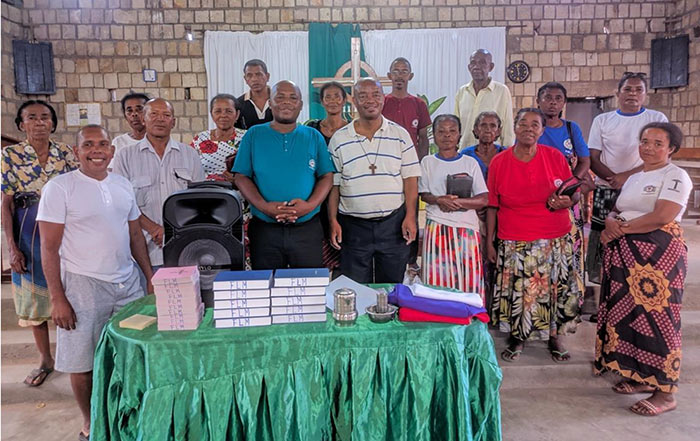
Pastor Theo training a local church group to conduct prison ministry. Prison ministry became a priority in the early days and has remained as a key program since FOMM’s inception in 2009.
David says, “In the southwest region called the Betioky Synod there was a need to support evangelists who would be assigned to live in non-Christian areas and share the Gospel. This region also suffered from frequent droughts and a lack of food production. We began by providing support for three evangelists.
In the same region there is a hospital called Ejeda that was set up as a mission hospital, meaning its purpose was to share the love of God through Jesus Christ by caring for the people’s medical needs. We started supporting this work through the Ejeda Nutrition Program. In Madagascar, as in many African nations, hospitals do not have a food service and so families of patients must provide and cook food for them during their hospital stay. If the family does not have food because of the drought conditions, they would not come to the hospital. We fund the provision of a gift of rice and a protein so the family is able to provide food for their loved one undergoing medical treatment.
We also began to fund a program called Nofy i Androy (Dream of Androy) in the deep south, where rural girls can access high-quality tutoring to enable them to complete school and move on to vocational or university training.”
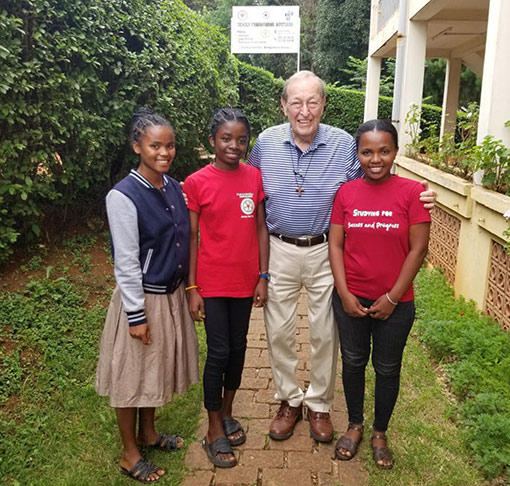
David Lerseth with young women from the Nofi I Androy program who have received scholarships to study nursing at SEFAM (Madagascar Lutheran School of Nursing). FOMM has established a relationship with Medical Mission Australia (MMA) to fund some of these scholarships.
The Vision Expands
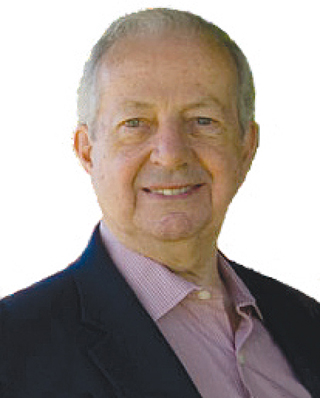
Rev. Morris Vaagenes, missionary to Madagascar, who was instrumental in linking FOMM to programs in need of funding.
FOMM expanded further by adopting other programs. For example, in 2015, Pastor Morris Vaagenes asked FOMM to take over funding for three Bible schools as well as the support of a missionary in the south, Steve Lellelid, to enable him to continue his translation of the Bible into the Tandroy dialect.
The FOFAJA (School for the Visually Impaired) was also adopted by FOMM, enabling students from around Madagascar to have a fair opportunity at getting a quality education.
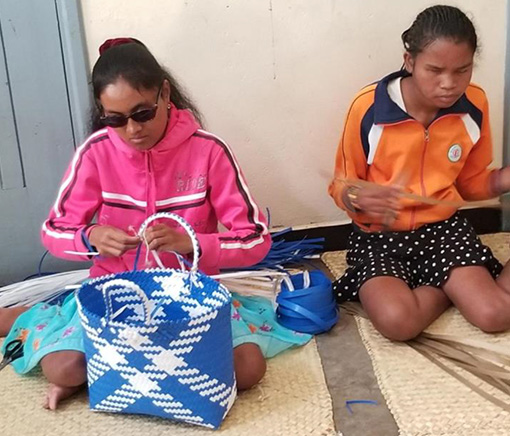
Students at the FOFAJA School for the Visually Impaired engage in basket weaving as part of their skills training.
With the expansion of so many new programs and increased fundraising, there was a need to have the Board of Directors increase their awareness and involvement in the operation of FOMM. In response to this need, three new board committees were created:
- Finance Committee
- Strategic Oversight and Planning Committee
- Committee for the Planning and Evaluation of FOMM’s Programs
In addition, new staff positions were needed as part of managing expansion. In 2021 the roles of Development Director, Media Director, Research and Grant Writing and Administrative Assistant were created to support David Lerseth in his position as executive director of FOMM.
David says, “The decision to establish these new committees and ministry portfolios for staff has been pivotal in the rapid growth and development of FOMM over the past four years. Strategic planning has taken a priority that has enabled us to contain rapid growth and expansion. This has included the creation of a long-range study by the Strategic Oversight and Planning Committee, with a revision of the FOMM organizational chart and ministry descriptions, as well as the division of the Prison Ministry structure in Madagascar into spiritual and humanitarian sectors.”
Looking back since the formation of FOMM in 2009, David notes some key lessons. “Most of the organizations that I tried to get to work together initially have either ceased to exist or have merged with FOMM, with only one remaining independent. Creating an independent organization, while taking me out of my comfort zone, proved to be the right decision.”
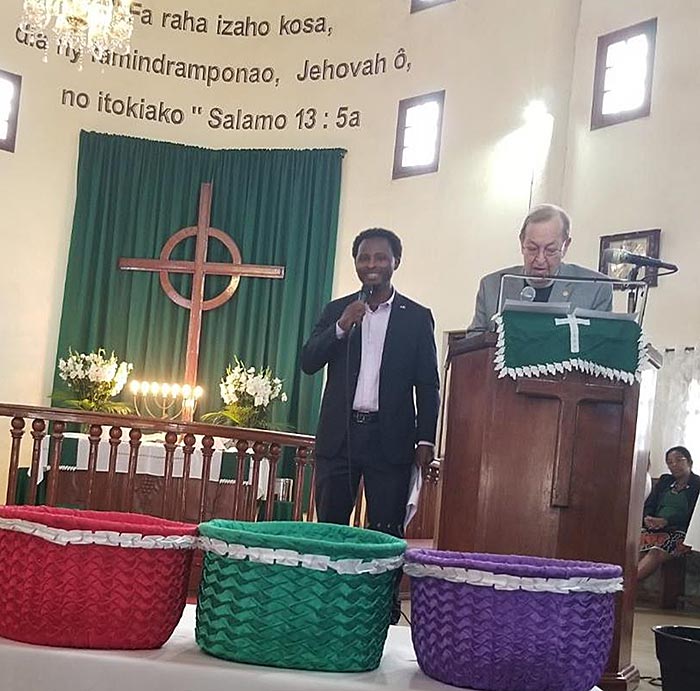
Rev. David Lerseth travels to Madagascar frequently to maintain contact with the leaders of programs funded by FOMM. Here he is preaching with his translator, Mr Luther Razafindrabfitory, who also serves as a document translator and researcher for FOMM.
The Sustainability Factor
David says, “We now support eight programs that are owned and run by local Malagasy leaders, with several more in the planning stages. Over the past several years we have become increasingly conscious that every program needs to have a culture and value of sustainability built into it. We have therefore decided to include the sustainability dimension into programs where possible so they become decreasingly dependent on external support. We believe this can be done as we establish vocational programs that teach prisoners and others in disadvantaged communities the skills that will enable them to be gainfully employed. Two such programs are welding training and recycling of plastic waste.
Finally, I believe a key to our growth is our decision that FOMM will remain as a volunteer organization, with 100% of designated funds going to programs and nothing to salaries or overheads. While this model may not be workable for every organization, we hope that others with a vision for mission and humanitarian work will consider it as a viable alternative option.
We give thanks for God for planting the vision for FOMM and nurturing it over many years by gathering a team of people who work together for His Kingdom and glory in Madagascar.”
You Can Help!
For more information on how you may support mission in Madagascar go to:
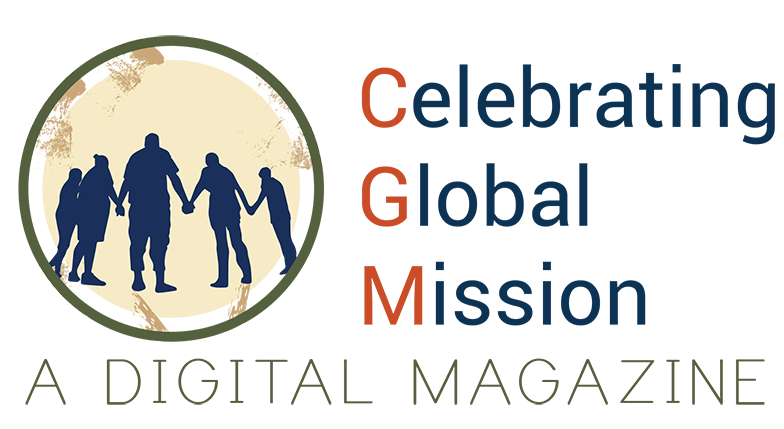






Trackbacks/Pingbacks